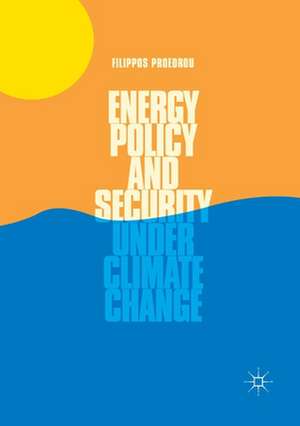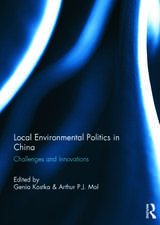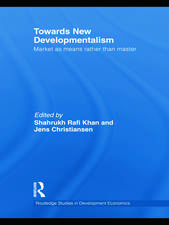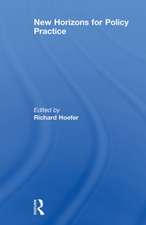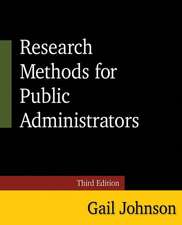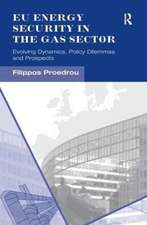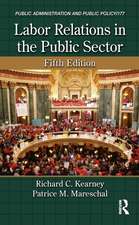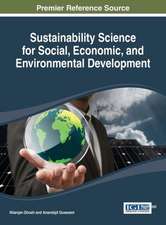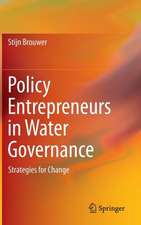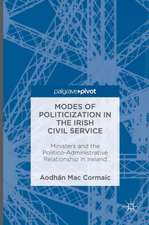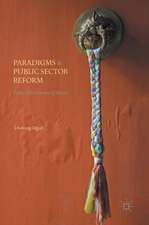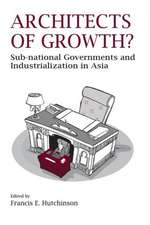Energy Policy and Security under Climate Change
Autor Filippos Proedrouen Limba Engleză Paperback – 29 ian 2019
| Toate formatele și edițiile | Preț | Express |
|---|---|---|
| Paperback (1) | 775.96 lei 43-57 zile | |
| Springer International Publishing – 29 ian 2019 | 775.96 lei 43-57 zile | |
| Hardback (1) | 781.00 lei 43-57 zile | |
| Springer International Publishing – 13 mai 2018 | 781.00 lei 43-57 zile |
Preț: 775.96 lei
Preț vechi: 946.29 lei
-18% Nou
Puncte Express: 1164
Preț estimativ în valută:
148.50€ • 154.46$ • 122.59£
148.50€ • 154.46$ • 122.59£
Carte tipărită la comandă
Livrare economică 14-28 aprilie
Preluare comenzi: 021 569.72.76
Specificații
ISBN-13: 9783030083861
ISBN-10: 3030083861
Pagini: 206
Ilustrații: XI, 206 p.
Dimensiuni: 148 x 210 mm
Greutate: 0.27 kg
Ediția:Softcover reprint of the original 1st ed. 2018
Editura: Springer International Publishing
Colecția Palgrave Macmillan
Locul publicării:Cham, Switzerland
ISBN-10: 3030083861
Pagini: 206
Ilustrații: XI, 206 p.
Dimensiuni: 148 x 210 mm
Greutate: 0.27 kg
Ediția:Softcover reprint of the original 1st ed. 2018
Editura: Springer International Publishing
Colecția Palgrave Macmillan
Locul publicării:Cham, Switzerland
Cuprins
Chapter 1: Introduction Chapter
Chapter 2: Ecological and Steady-State Economics: Principles And Policies.
Chapter 3: Designing a Steady-State Energy Policy.
Chapter 4: Energy Security in a Steady-State World.
Chapter 5: Geopolitics and Development in a Steady-State World.
Chapter 6: Conclusion.
Notă biografică
Filippos Proedrou is Research Fellow in Social Policy (International Affairs) at the University of South Wales, UK. His areas of expertise are energy policy and security, geopolitics, EU studies, Russian foreign policy and ecological economics. He has published extensively in these fields.
Textul de pe ultima copertă
‘A very topical contribution that integrates mainstream energy and ecological economics literature to establish a novel energy policy framework. The author not only showcases the merits of a steady-state energy policy for climate change mitigation and energy security, but also masterfully navigates through the implications of such a shift for world politics and the global society in the 21st century. This book is invaluable for energy and International Relations scholars and policy-makers alike.
—Christos A. Frangonikolopoulos, Aristotle University, Greece This book analyses the trilemma between growth, energy security and climate change mitigation and, breaking from scholarly orthodoxy, challenges the imperative that growth must always come first. It sets forth the argument that a steady-state approach is a more appropriate conceptual mindset to enable energy transition, sets out a steady-state energy policy, and assesses the projected outcomes of its implementation in the realms of energy security, geopolitics and development. By exploring in depth the implications of such a shift, the book aims to demonstrate its positive effects on sustainability, supply security and affordability; to showcase the more favorable geopolitics of renewable energy; and to unpack new pathways towards development. By bringing together ecological economics and mainstream energy politics, fresh insight to energy and climate policy is provided, alongside their broader geopolitical and developmental ramifications.
Filippos Proedrou is Research Fellow in Social Policy (International Affairs) at the University of South Wales, UK. His areas of expertise are energy policy and security, geopolitics, EU studies, Russian foreign policy and ecological economics. He has published extensively in these fields.
—Christos A. Frangonikolopoulos, Aristotle University, Greece This book analyses the trilemma between growth, energy security and climate change mitigation and, breaking from scholarly orthodoxy, challenges the imperative that growth must always come first. It sets forth the argument that a steady-state approach is a more appropriate conceptual mindset to enable energy transition, sets out a steady-state energy policy, and assesses the projected outcomes of its implementation in the realms of energy security, geopolitics and development. By exploring in depth the implications of such a shift, the book aims to demonstrate its positive effects on sustainability, supply security and affordability; to showcase the more favorable geopolitics of renewable energy; and to unpack new pathways towards development. By bringing together ecological economics and mainstream energy politics, fresh insight to energy and climate policy is provided, alongside their broader geopolitical and developmental ramifications.
Filippos Proedrou is Research Fellow in Social Policy (International Affairs) at the University of South Wales, UK. His areas of expertise are energy policy and security, geopolitics, EU studies, Russian foreign policy and ecological economics. He has published extensively in these fields.
Caracteristici
Challenges scholarly orthodoxy by means of disentangling energy security from the imperative of growth
Analyses why a steady-state approach is a more appropriate conceptual mind-set to enable energy transition
Provides a coherent framework for a revised energy policy spanning the energy, finance, tax, trade and monetary realms
Sets out different transition pathways and runs through their implications
Provides detailed consideration of the main features of the geopolitics of renewables
Analyses why a steady-state approach is a more appropriate conceptual mind-set to enable energy transition
Provides a coherent framework for a revised energy policy spanning the energy, finance, tax, trade and monetary realms
Sets out different transition pathways and runs through their implications
Provides detailed consideration of the main features of the geopolitics of renewables
